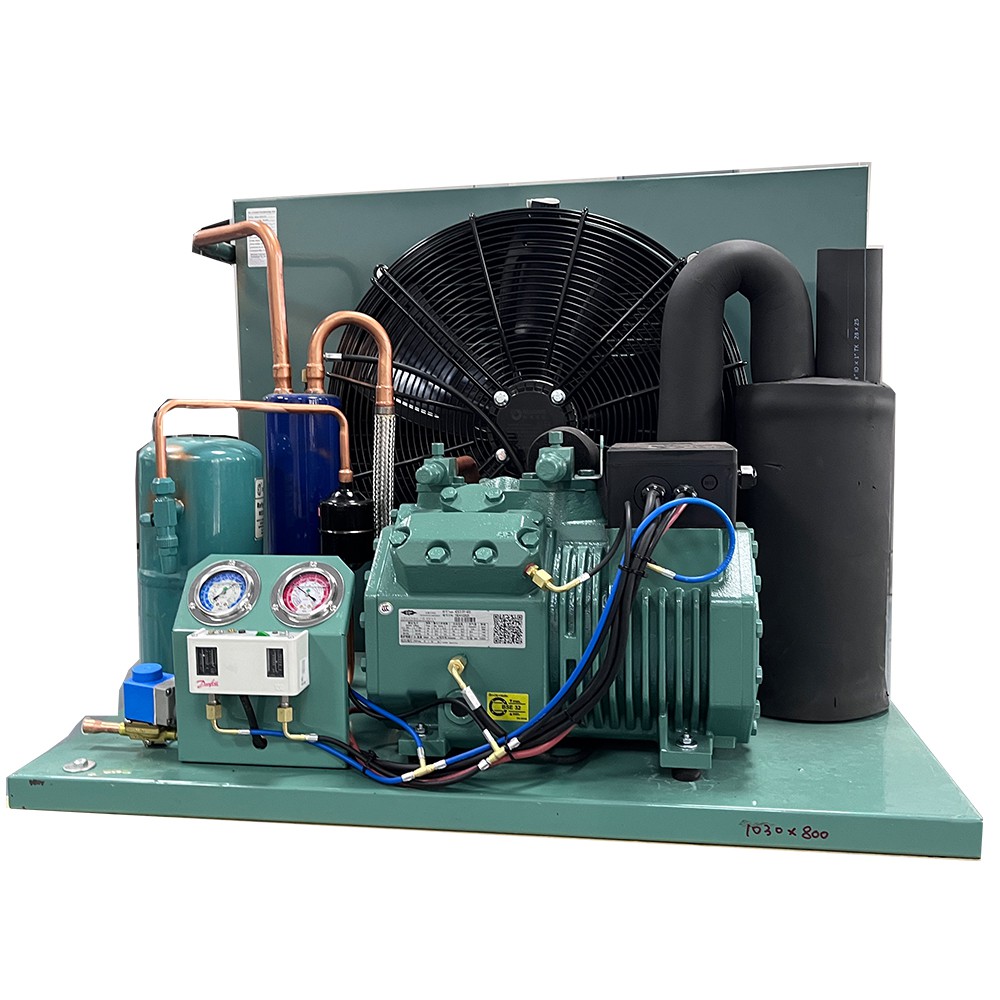Refrigeration condensing units, plays a crucial role in maintaining optimum temperatures for preserving perishable goods. I will delve into the importance of refrigeration condensing units and their applications in different sectors.
Refrigeration condensing units are key components in maintaining the desired temperature in cooling systems. These units work by compressing and condensing refrigerant gases, converting them into high-pressure and high-temperature states. The heat generated during this process is expelled outside the system using condenser coils, allowing the refrigerant to release the absorbed heat. As the refrigerant cools down, it transforms into a low-pressure and low-temperature state, ready to be circulated through the system again, thus maintaining a consistent cooling cycle.

Refrigeration condensing units have extensive applications in the food industry. From large storage facilities to small commercial refrigerators, these units are essential for preserving perishable goods. They ensure that the desired temperature is maintained at all times to inhibit bacterial growth and avoid food spoilage. In food processing plants, refrigeration condensing units are used in blast freezers and walk-in coolers to rapidly bring down the temperature of freshly harvested or packaged food items. These units not only reduce food waste but also extend the shelf life of perishable products, thereby reducing costs and ensuring higher quality for consumers.
Refrigeration condensing units also find significant importance in the medical and pharmaceutical sectors. From storing vaccines and blood samples to preserving medicinal drugs, these units ensure that the integrity of sensitive substances is maintained. By providing precise and consistent temperature control, refrigeration condensing units help safeguard the efficacy and potency of medications and other medical supplies. In hospitals and laboratories, these units are used in cold rooms and laboratory refrigerators to ensure the safe storage of temperature-sensitive substances, ultimately contributing to the overall health and well-being of patients.
Apart from the food and medical sectors, refrigeration condensing units have various applications in industries such as hospitality, transportation, and chemical storage. In the hospitality sector, these units are crucial in maintaining ideal conditions for food preservation in commercial kitchens and hotel pantries. In transportation, refrigeration condensing units are utilized in refrigerated trucks and containers to preserve perishable goods during transit. Additionally, in the chemical industry, these units play a vital role in maintaining the necessary temperatures for storing various chemicals and preventing hazardous reactions.
In conclusion, refrigeration condensing units are indispensable components in maintaining temperature control across various industries. From the food sector to medical facilities and beyond, these units ensure the preservation, safety, and efficacy of perishable goods, medical supplies, and sensitive substances. By understanding the functionality and applications of refrigeration condensing units, it becomes evident how vital they are in our daily lives and diverse industries.